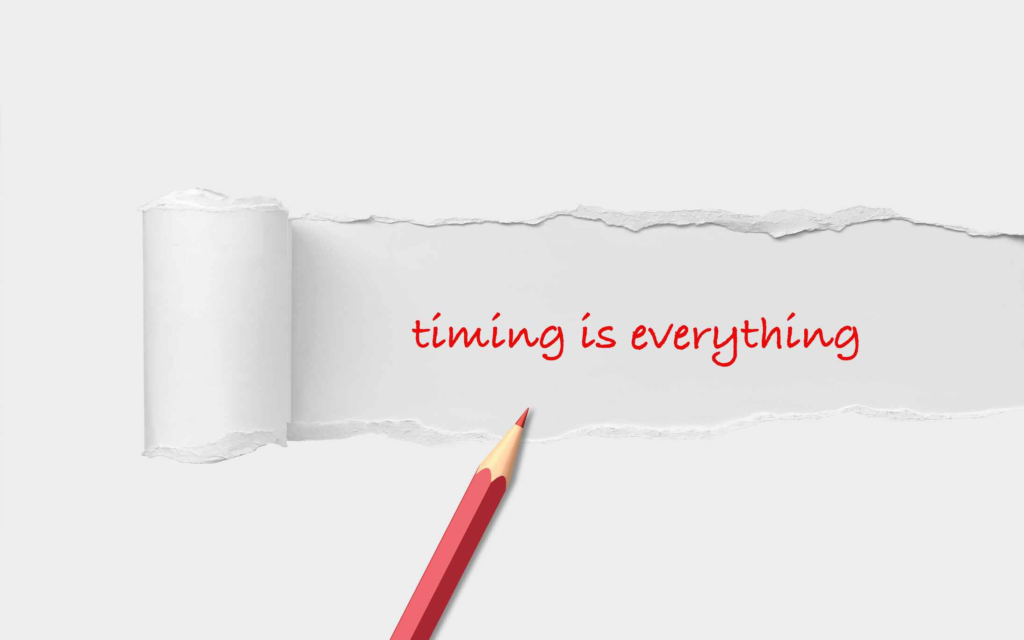There’s a lot of homework and soul searching to be done before asking for a raise. And while it would be extremely convenient for everyone involved if there was a magic “perfect” time to request one, the truth of the matter is that it depends on various factors that can change from company to company. Timing is key, however, so here are a few pointers on how to spot that golden window of opportunity.

When you’ve gotten more responsibilities
Have you noticed your workload has been steadily increasing with new responsibilities in addition to the ones for which you were hired? Now would be an ideal time to have a good old heart-to-heart with your boss about the desire for a raise. You’ll have an even stronger case if your title or position has officially changed as a result of these additional responsibilities, but it’s certainly not a requirement. Being able to point to specific, concrete examples of your supplementary tasks will also help.
When you’ve gotten established
Employers are usually more inclined to listen to a raise request once you’ve put in a decent amount of time and effort at the company. Business News Daily suggests waiting at least one year after you’ve started at a company to ask for additional compensation. You can confidently list your accomplishments from the past six months and the past year (and from you entire tenure with the company if it extends beyond the twelve month mark). The more number-oriented evidence you can give for justifying your raise, the better chance you have for making your case.
When business is looking up
Search for your next job now:
When business is good, bosses are happy. And when bosses are happy, they’re inclined to be a bit more generous when it comes to raises. Take stock of the company’s overall current prospects, as well as whether your boss seems happy with your individual performance. Asking for increased compensation during a successful quarter increases you chances of catching the higher ups when they’re a bit more relaxed. On the other hand, avoid asking for one if the company has recently laid people off, had a poor quarter, or if your boss seems particularly stressed (even if it’s about something personal).
When you know raises are coming up
Track the pattern within your own company to pinpoint when raises are typically given out. Then make sure to approach your boss at least one month (preferably two) before that deadline. This gives your employer time to think about it and get all the technical details in order in time for the annual handout. If your workplace operates on a yearly cycle, you don’t want to miss out just because you waited too close to the deadline.
When the month starts with “J”
If your company doesn’t operate on a regular raise-giving schedule, CNBC reports January, June, and July are typically the most popular months for raises to be handed out. Why? January is the most popular in general because many companies’ budgets reset on the start of a new calendar year. June and July are similarly popular because some businesses end their fiscal year in June. It also depends on the industry you work in—accountants, for example, see less raises in January because that’s when tax season responsibilities really start ramping up and no one has time for things like dealing with raises. They see more raises in the summer, however, because it marks the end of their busy season.
Asking for a raise can be a particularly delicate process no matter how justified you feel in requesting one. Don’t let that stop you from getting what you deserve. With the suggestions listed above and armed with enough data-backed proof that you’re worth it, you can turn (almost) any time into a good time to shoot your shot.
Source: WashingtonPost
A. M. Archibong Esq






























